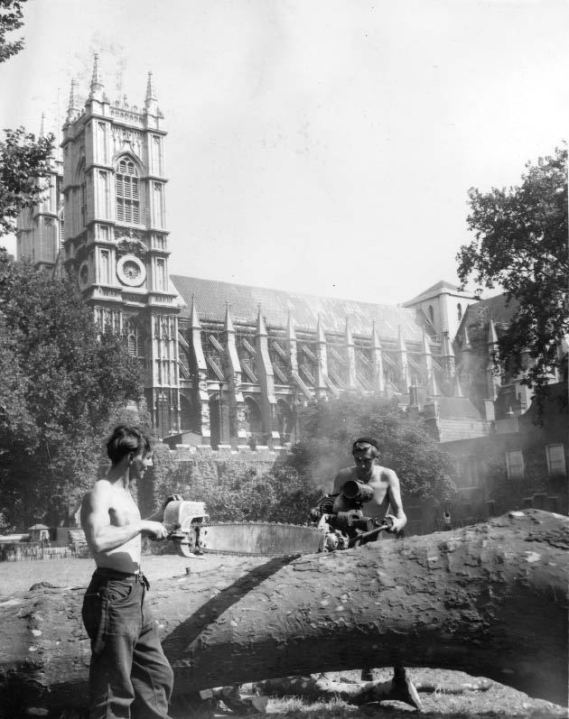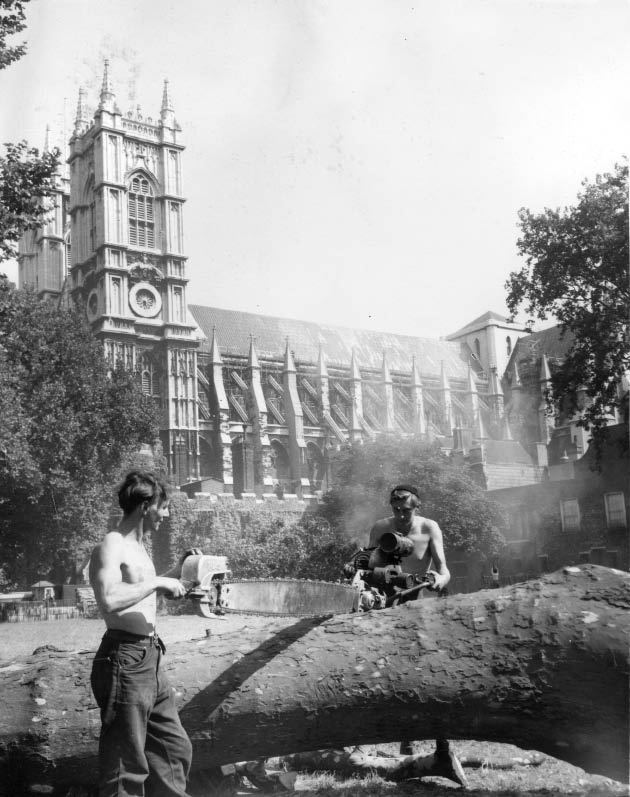What is happening to trees in Britain? Horse chestnuts now turn brown in July. A microscopic caterpillar eats out the green insides of the leaves; only the outer skins remain. Horse chestnuts also weep dried blood from their bark, and sometimes the huge trees spectacularly die. Alders have been weeping bloody tears and dying. Newspapers warn of sudden oak death and acute oak decline. The Forestry Commission has stopped planting Corsican pine because of red-band needle blight.
The problem is globalisation of pests and diseases. Diseases which for millions of years evolved to come to terms with their local hosts are introduced to other countries and find new host trees that have not adapted to living with them.
The horse chestnut itself symbolises globalisation. It began as a small tree clinging to Balkan limestone cliffs, whence gardeners took it 400 years ago. Now, I suspect, a native pest has caught up with it. The Yugoslav discoverer of the micro-caterpillar named it Cameraria ohridella, after the city of Ohrid near the horse chestnut’s homeland.
How serious are these threats? Are they a re-run of Dutch elm disease, which took out big elms in the 1920s and again in the 1970s? The micro-caterpillar has not been here long enough to tell. But horse chestnut, a robust tree, so far seems not to mind having its effective growing season cut in half. In this country, despite its name, sudden oak death has not mainly been an oak disease: it has hit rhodendrons, a plant that conservationists dislike. Acute oak decline is an unknown quantity: there have been mysterious oak declines in the past, as in the 1920s.
Matters could be much worse. Kyoto, Japan, is surrounded by richly wooded mountains. This year alone a sixth of the trees have died, but not because anyone has neglected the Kyoto Protocol on climate change. Pines are killed by a microscopic worm said to have come from America. Oaks are killed by a combination of a microscopic fungus and a bark beetle. The pine worm attacks kuromatsu, the much-loved Japanese red pine, which resembles the Scots pine of Europe. This oak disease prefers konara, commonest of the Japanese oaks; its second preference is mizunara, the oak most like English oaks.
American trees have also suffered greatly. In 2003 I was in the state of Ohio. I found no living American sweet chestnut. ‘Under a spreading chestnut tree/ The village smithy stands’ — but the chestnut tree is now rarer than the smithy, owing to chestnut-blight fungus, accidentally introduced from the Far East in the 1920s. Most elms had fallen to Dutch elm disease, introduced from Europe in the 1920s. Most red oaks were victims of oak wilt of unknown origin. Cornus florida, most beautiful of American flowering shrubs, and state flower of Virginia, was subtracted by another fungus. A European insect was subtracting fir-trees on Ohio’s border. The commonest remaining tree was ash. Uncle Sam was spending many millions of dollars on keeping out Emerald Ash Shoot Borer, an Asian insect: I predicted that he would fail, and he has failed. All this in less than a century: what will be left in another hundred years?
Ecological tragedy befell the marvellous forests of south-west Australia: a land isolated by deserts, with thousands of extraordinary trees and plants found nowhere else. Worse than greedy farmers, loggers and diggers was someone inadvertently releasing a common tropical fungus to which the special plants had no resistance.
Can’t exotic tree diseases be beaten? I know of only half an instance. Chestnut blight devastated the sweet chestnut woods and orchards of southern Europe, as well as America, from the 1920s. It is no longer much of a problem: not because anyone did anything, but because God raised up a fungal virus which rendered the fungus innocuous. But all human attempts to get the virus going in America have been ineffective.
Don’t Customs keep out diseased plants? Don’t they, very properly, persecute tourists bringing back little Christmas trees in their luggage? Shouldn’t travellers scrape mud off their boots before stepping on a plane? The real problem is with trade. For petty commercial and bureaucratic reasons, many trees and plants sold in this country, even those supposed to be ‘native’, are imported. Importing millions of container-grown plants means importing thousands of tons of foreign soil. A fingernail of soil can start a fungal epidemic. Vigilant though Customs and respectable nurseries are, it would be superhuman of them to detect every microscopic foreign pathogen, not knowing what to look for.
It is a grave mistake to think this is a specially British problem: like global warming, it cannot be cured by action within our borders. The problem is not known plant diseases, but those of the future. Once a new pathogen has been identified and bureaucracy has clanked into action, the battle is lost.
As I understand the regulations, any of the world’s tree diseases are at liberty to enter this country provided they do so via some other European Union country. I said this at a conference in Ireland. Haven’t the Irish, after the potato blight of 1845–49, had enough experience of foreign plant diseases to last them a thousand years? No: the man from the ministry bleated that keeping out foreign pathogens would be a restriction on trade; the World Trade Organisation wouldn’t allow it. The WTO won’t let the stable door be shut until plant pathologists certify that the horse has bolted.
The greatest threat to trees and forests is the tendency of Homo sapiens deliberately to mix up all the world’s trees and inadvertently to mix up all the world’s tree diseases. Diseases have a terrible power randomly to attack familiar trees, which even superabundant deer cannot match. What happens if (or when?) pine worm and Japanese oak disease get to our pines and oaks?
All British trees are threatened: some, like alder, by diseases already here; others, like ash and oak and pine, by pests and diseases active in other countries; and all the rest by the future diseases that will declare themselves during the 21st century. Britain’s trees have been let off lightly so far, but they may not be for ever.







Comments